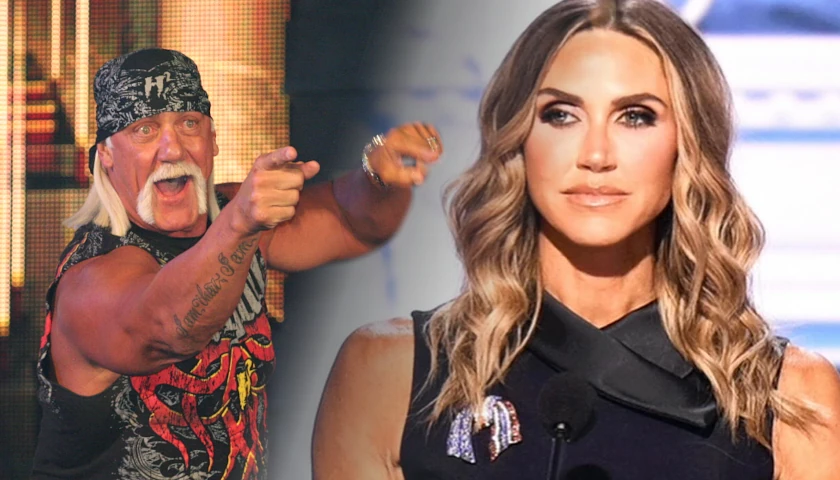by Tom Raabe
We all know how the Biden administration, on Day One, reversed two of the most successful Trump initiatives — energy independence and border control — turning with executive orders both areas into the twin disasters that have become part of our daily lives.
In June, the administration laid out new rules for Title IX of the Education Amendments Act of 1972 that roll back the common-sense advances of the Trump years, will cloud the waters on campus sexual-harassment litigation, and are guaranteed to throw even more chaos into the already tumultuous transgender arena.
As for the first piece in this trifecta, the sexual harassment element, the Left is hailing the new regs as the freeing of sexual abuse victims and a much-needed antidote to Trump-era rules. Trump had reversed the Obama administration’s harassment adjudication practices that denied due process and free speech rights to those accused of sexual harassment — practices that created, as called by one commentator, “kangaroo courts in which respondents had limited access to evidence and no right to cross-examination, hearings, or legal counsel” — and allowed a single school bureaucrat to serve as investigator, prosecutor, jury, and judge in a sexual abuse case. The Trump Department of Education had, in 2020, returned many due process rights to the accused, including hearings, legal representation, cross-examination, full access to evidence, and appeals.
The proposed new rules eliminate the live hearing and cross-examination requirements, leaving them to the discretion of the school. They also undo Trump’s prohibition of the “single investigator model,” a system that permits a lone bureaucrat to investigate a sexual harassment case and also serve as judge and jury.
Also proposed is a lessening of the burden-of-proof requirements necessary for conviction of discrimination or abuse. Under the Trump rules, a complaint, to be successful, had to reach a clear-and-convincing-evidence standard, similar to that used in business cases, whereas Biden intends to loosen that standard to a “preponderance of the evidence” level — that is, a determination that the discrimination occurred “more likely than not.” This new standard, says one jurist, sympathetic to the new regs, enables the school bureaucrat “to weigh all available evidence, including the credibility of witnesses, and determine what is likely to have happened without extrinsic corroborating evidence that is oftentimes lacking.”
All in all, the Trump policies, according to victim advocacy groups, discouraged survivors from filing harassment and abuse charges. The Department of Education claimed these policies had “weakened protections for survivors of sexual assault and diminished the promise of an education free from discrimination.” Said Sarah Warbelow, the Human Rights Campaign’s legal director, “The proposed rule change gets at the heart of what Title IX is supposed to do — protect students from sexual assault, sexual harassment and discrimination while on campus.”
So, it’s back to the Obama-era regs. Whether they will ramp up the already litigious atmosphere of the college dating scene remains to be seen. According to Paul du Quenoy, writing in Newsweek, during the Obama years, 73 percent of the Title IX–related lawsuits filed in federal courts included defamation claims against complainants: “Many also brought claims against Title IX officials, who are often exposed as biased against male students.”
Another study showed that, between 2011 and 2019, over 500 lawsuits were filed by students alleging they were accused wrongly of sexual misconduct. Writes Sarah Perry of the Heritage Foundation, “Federal and state courts ruled against universities in 151 of 298 decisions that were issued during the same time interval, having found the lack of due process in the campus tribunal hearings to have rendered them fundamentally unfair.”
The new regs, however, broaden that sensitivity exponentially. Explains Shep Melnick:
The 2022 proposal, in contrast, endorses what the Obama administration called a “new paradigm” on sexual harassment, one far removed from the Supreme Court’s interpretation of Title IX. According to this approach, the problem is not a few bad apples but rather a “rape culture,” especially on college campuses. The Biden administration’s focus is changing that culture, as the President frequently emphasizes.
The other element to the new rules is the sexual-orientation and transgender piece. The new regs expand discrimination on the basis of what the original 1972 law called “sex” to include “sex stereotypes, sex-related characteristics (including intersex traits), pregnancy or related conditions, sexual orientation, and gender identity.”
What that means, according to Perry, is that “any K–12 school or institution of higher education that receives federal funding would have to open its bathrooms, locker rooms, housing accommodations, sports teams, and any other sex-separated educational program or offering to the opposite sex, if those individuals simply claim to be female.”
Pushback from red states has been extensive. When the Education Department issued a heads-up in June 2021 that it would be including sexual orientation and gender identity in its definition of “sex,” 20 states bonded together to seek injunctive relief against the department’s interpretation. Bathroom laws and statutes limiting women’s sports to biological females have been passed in many states as well, an occurrence that portends myriad legal battles before any new Title IX rules can go into effect.
While the transgender sporting scene will doubtlessly be affected by the new rules, the Education Department, ironically, deigned not to include specific regulations about the hottest of hot buttons in today’s gender wars, biological males playing women’s sports, instead electing to issue a separate proposal at a later time.
The proposed regulations will now enter a lengthy review process, in which comments from concerned parties will be considered before the rules are implemented.
Whatever the final guidelines be, if they pass legal muster, Title IX will likely ping-pong back to more sane rules in 2024, if Biden is shown the stairway to his basement by a Republican challenger. The rules went from Obama to Trump to Biden, from liberal to conservative back to liberal again. Apart from the unlikely prospect that Congress gets its act together and rewrites Title IX in the meantime, it’ll be conservatives’ turn to hit the ball again in 2024.
– – –
Tom Raabe is a writer and editor living in Tempe, Arizona.
Photo “Joe Biden” by Joe Biden.








